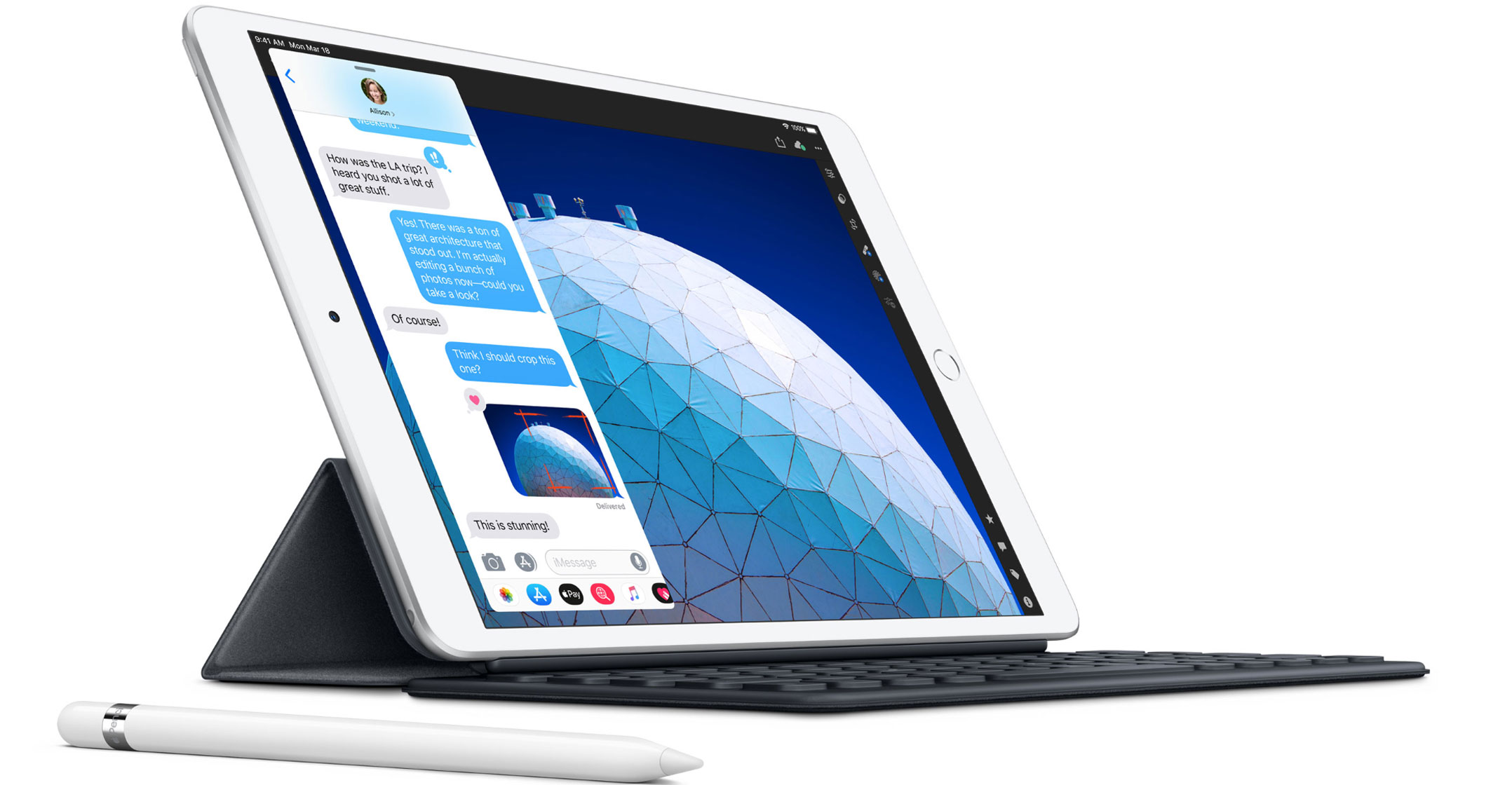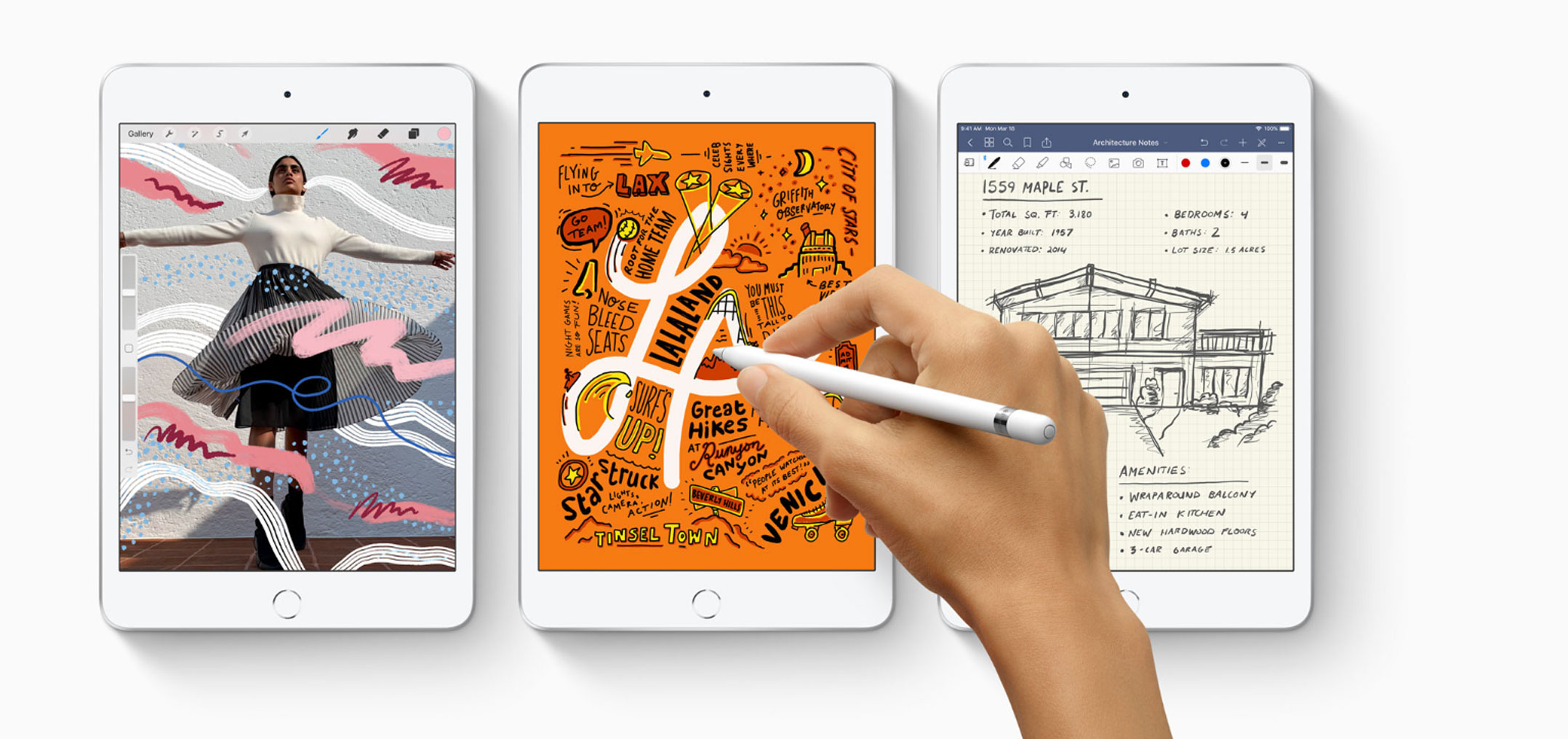
Apple has debuted a new mid-tier iPad with a larger screen and introduced the first iPad mini update since 2015. The announcements on Monday come a week before the company rolls out a media and entertainment bundle designed to compete with Netflix.
The company debuted a new iPad Air with a 10.5-inch screen, bringing back a model that was phased out when Apple launched the iPad Pro a few years ago. That screen size is larger than the 9.7-inch, US$329 model designed for education that Apple launched last year.
The iPad mini, a device that some consumers have been seeking an upgrade for, continues to use a 7.9-inch screen.
The larger iPad introduced today supports the company’s Smart Keyboard, while both new devices work with the Apple Pencil stylus and include a faster A12 processor, a step up from the A10 chip used in last year’s education model.
The new models still use a home button with fingerprint scanner rather than facial recognition like on the more expensive versions. The new iPad mini models will still start at $399, while the 10.5-inch iPad Air starts at $499. They’re available to order online now and in stores next week, Apple said.
Like every version of the iPad since the first in 2010, the latest models come in configurations that connect to either just Wi-Fi or cellular networks as well. The cellular iPad mini costs $529, while the cellular iPad Air costs $629. Both iPads come in 64GB and 256GB storage capacity options.
Revamped
Last year, Apple held a launch event to promote the previous entry-level iPad and its education efforts at a Chicago-area high school. The company revamped its more expensive tablet line, the iPad Pro, last October with Face ID and slimmer bezels.
On 25 March, Apple is holding an event to launch its Netflix competitor and an Apple News Magazines subscription service. It’s also planning to announce the next major iPhone, iPad, Mac, Apple Watch and Apple TV software updates on 3 June. Apple could position the cheaper device as a hub for the new services and as a way to use the company’s latest software.

Apple’s iPad strategy in recent years had been splitting the category into two lines: lower-end models geared toward education and high-end models for business users. It typically updates the cheaper versions in March and the Pro models in the second half of the year. However, this year the company is pushing its entry-level iPads toward the higher-end of the market.
For years, Apple has dominated the tablet category. According to IDC, the iPad held a leading 27% of the market in the third quarter. However, that represented about a 7% year over year decline in sales for the quarter. Apple stopped reporting iPad, iPhone and Mac unit sales during its previous holiday quarter. Annual iPad revenues have also fallen slightly consecutively each year since 2013 as Apple and the industry increase smartphone screen sizes.
The new iPads will kick off a planned year of several major new hardware launches for the Cupertino, California-based technology giant. Apple is also planning a new iPad mini, new AirPods and Apple Watches, multiple new Macs, including a revamp to the Mac Pro, and three new iPhones for this year. — Reported by Mark Gurman, (c) 2019 Bloomberg LP



